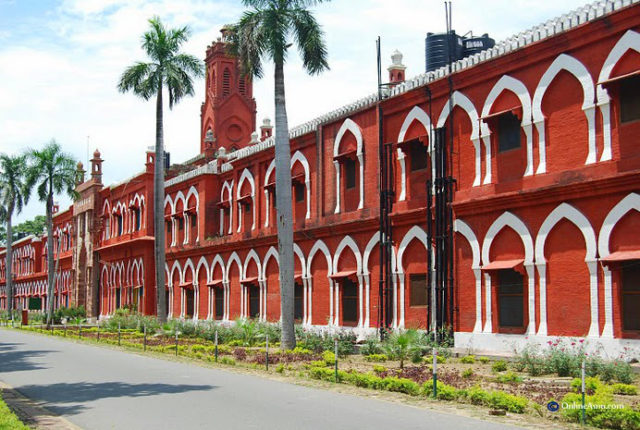Aligarh Muslim University (AMU) is a Minority Institution rules Supreme Court

Syed Ali Mujtaba,TwoCircles.net
New Delhi: In a landmark judgment the Supreme Court of India “overruled” its judgment taken in the Azeez Basha case of 1967 that denied minority status of Aligarh Muslim University (AMU), on grounds that AMU is a Central University funded by the Central government.
The Chief Justice of India DY Chandrachud who led the seven members Constitution Bench said that a regular Bench should decide the question of the minority status of the AMU.
The regular Bench would also decide the correctness of the Allahabad High Court decision in the 2006 that struck down the 1981 amendment conferring minority status on the AMU.
Aligarh Muslim University (AMU) enjoyed the minority character from 1920 to 1951, when the controversy erupted after compulsory religious education to the Muslim students was withdrawn.
In 1967 a five-judge Constitution Bench looking into Azeez Basha ruled that AMU, being a Central university, cannot claim to be a minority institution.
In 1981 the Parliament, by virtue of the Aligarh Muslim University (Amendment) Act, 1981 conferred minority status on the AMU.
In 2006 the Allahabad High Court, struck down the Parliamentary order 1981 amendment that conferred minority status on the AMU.
The seven members Constitution Bench of the Supreme Court was dealing with a reference arising out of the 2006 decision passed by the Allahabad High Court.
In the seven member bench, four members ruled in favor of revoking the 1967 judgment that revoked the minority status and the three members wanted to uphold the 1967 judgment.
The majority opinion, concurred by Justices Sanjiv Khanna, J.B. Pardiwala, Manoj Misra, and SC Sharma, said that the regulation of minority educational institutions is permissible under Article 19(6), however, those regulations should not impinge upon the minority character of the institution.
It said, “Regulations, which may be justified on grounds stipulated under Articles 19(6) and 26, may fall foul to Article 30 if they infringe upon the minority character of the institution. This is a special right/protection which the Constitution guarantees to minority educational institutions.”
It further said, “An educational institution established by any citizen can be regulated under Article 19(6). An educational institution established by a religious denomination without any element of profit can be regulated on grounds of public order, morality and health. As opposed to these two provisions, Article 30 does not circumscribe the right on any grounds. However, the right guaranteed under Article 30 is not absolute.”
The majority opined that Article 30 guarantees minority educational institutions the right not to be discriminated against and in fact, Article 30(2) is the facet of the non-discrimination of minorities.
Those who had contrarian views are Justices Surya Kant, J.B. Pardiwala, Dipankar Datta and SC Sharma wrote separate and dissenting opinions.
The short of the long story is Aligarh Muslim University (AMU), remains to be a minority institution. It has taken 70 years to close the legal wrangles.
Syed Ali Mujaba is a journalist. He did his BA & MA from AMU during 1978 – 1984. He can be contacted at [email protected]
